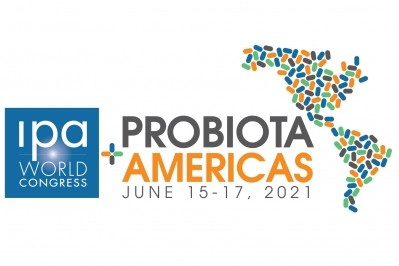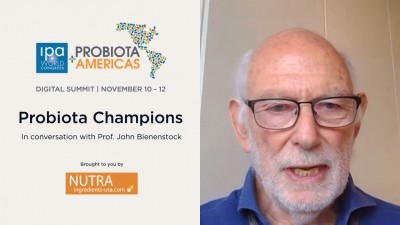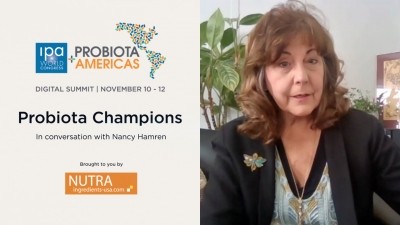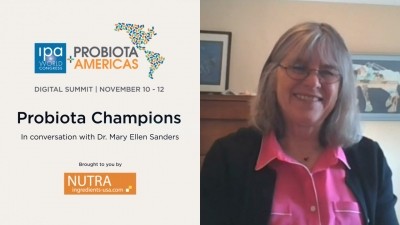Probiota Champions: In conversation with Prof Gregor Reid
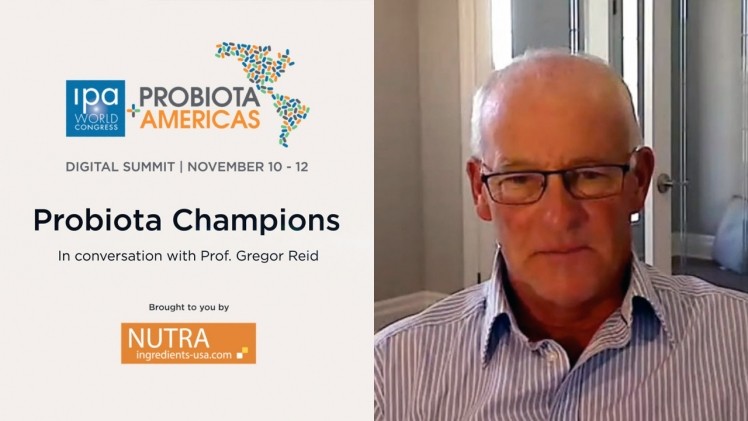
Prof Reid is an internationally recognized expert and leader in probiotics. Until his recent retirement, he was the Distinguished Professor of Microbiology and Immunology and Surgery at Western University in Ontario, and the Endowed Chair in Human Microbiome and Probiotics at the Lawson Health Research Institute.
He chaired the World Health Organization Expert Panel and Working Group on Probiotics in 2001-2 that defined ‘probiotics’ and has served as President and Board member for the International Scientific Association for Probiotics and Prebiotics.
In a wide-ranging interview with NutraIngredients-USA for its recent Probiota Americas Probiota Champions video series, Prof Reid discussed his early career with probiotics, the challenges the category faced in the 1970s and 1980s, how quickly the FAO/WHO probiotics definition came together, his ongoing frustrations with misuse of the term ‘probiotic’, and his pioneering work in Africa.
Africa
Prof Reid talks proudly of the achievements in Africa, which started off with stop overs in South Africa and Kenya during a trip home to Europe from New Zealand. Those visits had a profound impact on him. When he was back in Canada, a Kenyan woman joined the university’s administration and there was a group that was charged with helping the HIV epidemic.
“Stephen Lewis was the HIV Ambassador to AIDS in Africa and he came to our university and said, ‘you have to help. We need your help’,” recalls Prof Reid. “And because this woman was from Kenya, and because I had been to Kenya, we were asked to join the group. I said, ‘Look, if you’re going to do something, you cannot have people waiting for a plane to come in every week with the answer. You have to give them something that they can call their own and they can develop themselves. So, I said we should make a probiotic yogurt.’
“So, we taught two students how to make this. I just used GR1 because it was rhamnosus, it grows OK in milk, etc. The woman from Kenya got in touch with a women’s group [in Kenya]… and this women’s group took on the project. And because of their hard work, due diligence, determination, they kept it going.
“A few years after it started, Remco Kort, who I had met in the Netherlands… asked to come out and look at it [the project]. And he went back and basically trained Wilbert Sybesma, and they said they really wanted to do something.
“And they did a couple of things that were really very impressive: They formed Yoba for Life, which is a non-profit foundation. And the system we were using was not going to work in the long-term: The GR1 strain was at an institute; the institute had to culture it up every week; the Mamas would walk to the institute and walk back to the kitchens to culture them. That couldn’t go on forever…
“So Remco and Wilbert designed these sachets, and they got a generic strain of GG … and they looked at 200 other strains and got a Streptococcus thermophilus strain that was really good at fermenting milk, they put them together, put them in a sachet that lasts for two years at room temperature. You pour in the sachet, there’s a little diagram on the back that says, ‘this is how you make 100 liters of yogurt’. Unbelievable. So that transformed everything for us.”
To watch the full interview, please click below.
